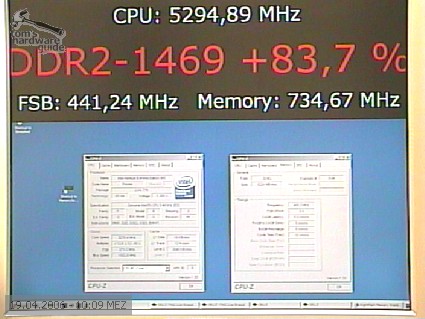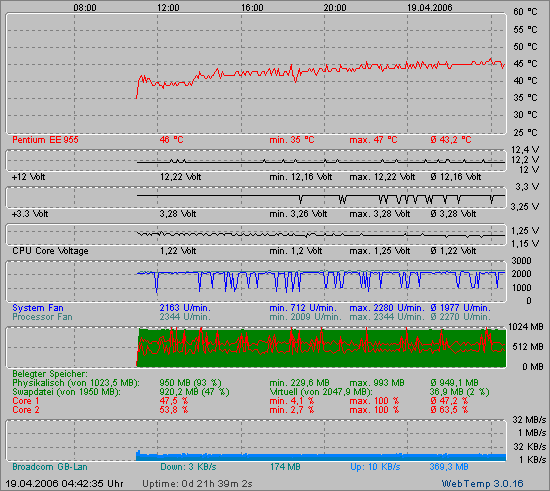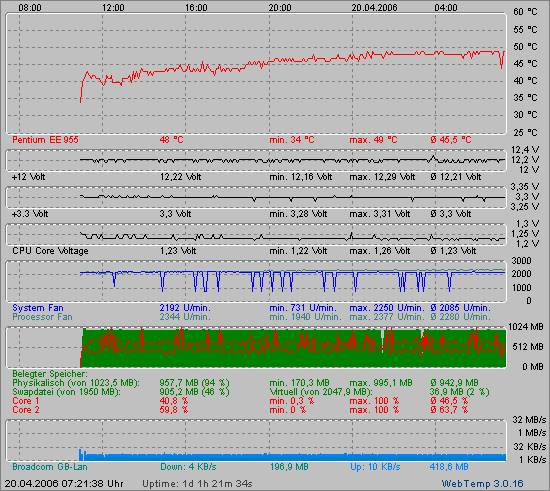Live Memory Test: Overclock 'Em Till They Crash
Update 4: OCZ Retail Memory Is Close To Maximum Sample Clock Speed
This is the last picture of the memory stress test system that ran the OCZ DDR2-800 memory:
Our readers that were following the live stress test noticed a ridiculously high memory clock speed on Wednesday morning: The still picture shows a memory clock speed of 734 MHz (DDR2-1469) and a CPU clock speed of 5.29 GHz. This is of course impossible to reach. The final memory clock speed was 455 MHz or DDR2-909. We found that the error was caused by a log file that could not be read correctly, as the system crashed the very same moment.
Out statistic diagrams prove that both test systems ran properly. At 1:26 am PST (10:26 am CET) we commenced the stress test procedure for the OCZ DDR2-800 RAM. The review samples that we had received earlier this year crashed at 10:24 pm at 473 MHz (DDR2-946). The comparison memory that we bought in retail, however, failed two hours and 35 minutes earlier, at 455 MHz memory clock (DDR2-909).
This is the stress test log for the retail bought OCZ memory.
And this summary log shows the stress test data for the review sampled from OCZ.
As you can see the CPU temperature raises during the stress test process, because we gradually increase the Front Side Bus speed in given increments. As a result, the CPU clock speed climbs as well.
The difference between the review samples and the retail product was 473 vs. 455 MHz. This has the retail product perform 3.8% worse than the review memory. It is difficult to comment on a difference that is that close to the 2-3% tolerance that we would expect. We still want to refer to the GeIL and Kingston stress test runs at this point: In these cases, the maximum memory clock speed of the retail and the sample memories was at closer quarters. GeIL's retail memory performed equal, Kingston's memory was 1.06% faster.
Get Tom's Hardware's best news and in-depth reviews, straight to your inbox.
Current page: Update 4: OCZ Retail Memory Is Close To Maximum Sample Clock Speed
Prev Page More Stress Test Details Next Page Even More Stress Test DetailsTom's Hardware is the leading destination for hardcore computer enthusiasts. We cover everything from processors to 3D printers, single-board computers, SSDs and high-end gaming rigs, empowering readers to make the most of the tech they love, keep up on the latest developments and buy the right gear. Our staff has more than 100 years of combined experience covering news, solving tech problems and reviewing components and systems.



